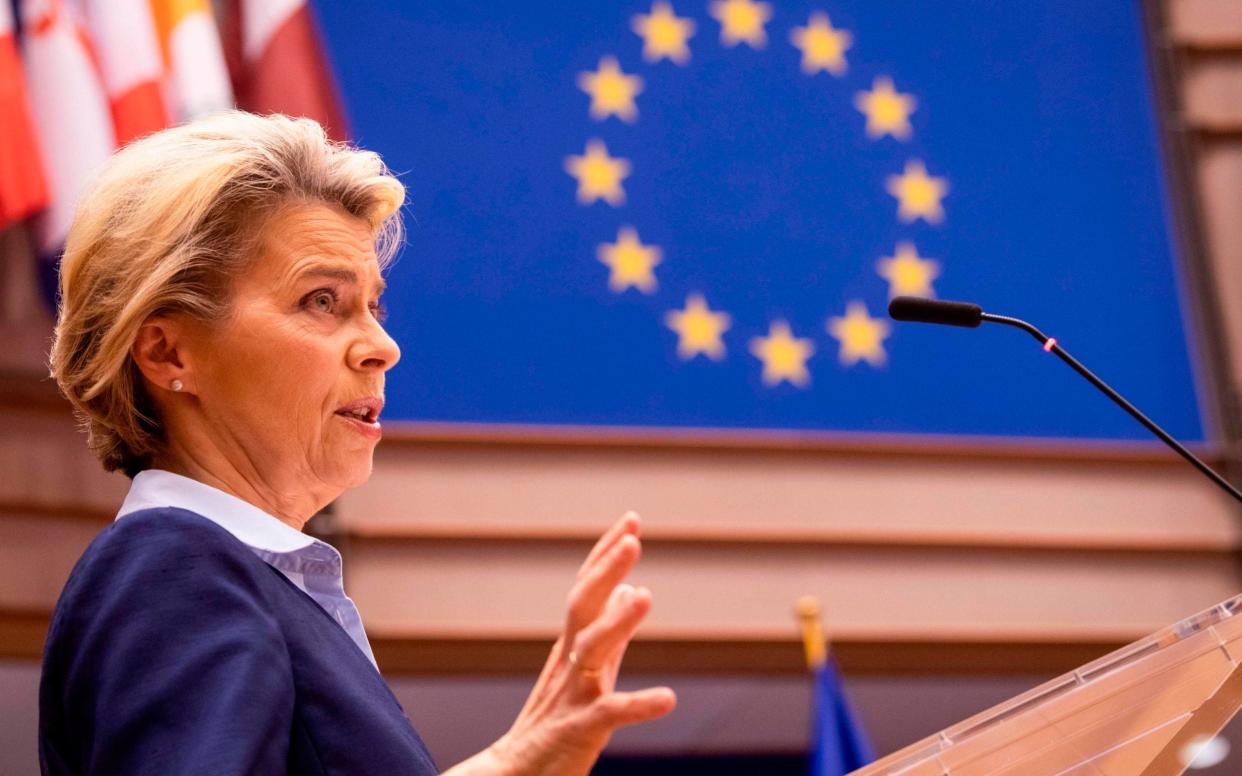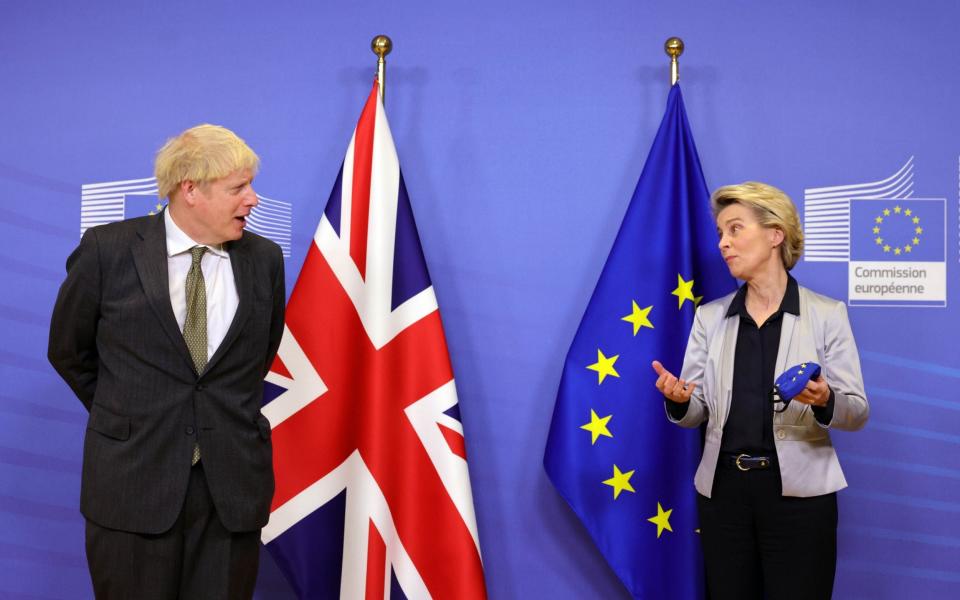Divisions over fishing risk sinking 'close' Brexit trade deal, Brussels warns

UK-EU divisions over fishing are jeopardising a Brexit trade deal, which is “so close”, the European Commission president warned on Wednesday.
Ursula von der Leyen said that talks over access to UK waters for EU fishermen from January 1 was now the biggest obstacle to agreeing the zero-tariff, zero-quota deal before the end of year deadline.
It raises the prospect of a row over fishing, which is just 0.1 percent of the UK economic output, forcing a no deal Brexit, which the Office of Budget Responsibility warns could wipe 2 percent off GDP.
Boris Johnson said there was “every hope” the EU would do a deal but whatever the outcome of negotiations, Britain would “prosper”.
“I cannot tell you whether there will be a deal or not. But I can tell you that there is a path to an agreement. Now, the path may be very narrow but it is there,” Mrs von der Leyen told MEPs in Brussels.
“This is now a case of us being so close and yet being so far away from each other,” Mrs von der Leyen said in the European Parliament.
Emmanuel Macron, who has threatened to veto a trade deal that did not respect French red lines over fishing and the level playing field, said he wanted the “best relationship possible” with Britain. The French President said the Single Market had to be protected from unfair competition from British companies.
In Berlin, Angela Merkel said that progress had been made in the talks but there was no breakthrough yet. The German Chancellor said the EU was ready for no deal but remained “of the view that a Brexit deal would be better than no deal.”
British negotiators asked Brussels to move on fishing after making concessions on the level playing field this week but those overtures were rebuffed.
The EU wants a longer transition period for the new fishing arrangements to come into force than Britain has offered.
The UK proposed a three year “glide path” towards a significant increase in the British share of the catch from its waters. The EU wants as long as ten years.
Diplomatic sources in Brussels have long suggested that a five to seven year transition period for fish, which will allow the UK to build up its fleet and EU fishermen time to adapt, is the most likely landing zone.
“We do not question the UK sovereignty on its own waters. But we ask for predictability and stability for our fishermen and our fisherwomen,” Mrs von der Leyen said.
She said, “On fisheries, the discussion is still very difficult. And in all honesty, it sometimes feels that we will not be able to resolve this question. But we must continue to try to find a solution.”
EU sources have suggested that Britain has watered down its demands that all foreign-owned boats under a UK flag be majority owned by British companies.
In London, MPs have been primed to vote for a possible Brexit trade deal at the beginning of next week, which has raised hopes a deal is closer than ever.
A UK official said, “We’ve made some progress but we are still very far apart in key areas.”

The trade negotiations have been stymied by the three major obstacles of fishing, the level playing field guarantees and the deal’s enforcement since talks began in March.
“The good news is that we have found a way forward on most issues,” Mrs von der Leyen said.
Progress had been made on subsidy law towards an agreement that would allow Brussels to take unilateral actions such as tariffs to redress unfair competition from the UK, she said.
Both sides have also agreed “a strong mechanism of non regression” on EU standards on labour, social and environmental standards, Mrs von der Leyen said.
“That’s a big step forward,” she said.
She said that difficulties over governance, the deal’s enforcement, were now “largely being resolved”, leaving fishing the major stumbling block to a deal.
“Honourable Members, the next days are going to be decisive,” she said.
MEPs are concerned that a deal could be implemented provisionally before they get the chance to vote on it.
Mrs von der Leyen said: "The clock puts us all in a very difficult situation, not least this Parliament and its right to exercise democratic scrutiny and ratification."
In Britain, measures are being drawn up for Parliament to sit in the days leading up to Christmas if necessary for a deal.
Commons Leader Jacob Rees-Mogg used his ConservativeHome podcast to say a deal could be rushed through both Houses of Parliament very quickly.
"You can really, really truncate the parliamentary process if necessary and if there is a will to do it," he said.
Meanwhile, the Council of the European Union rubber-stamped no trade deal Brexit emergency plans on fishing and transport.
On fishing, it will allow the European Commission to agree continued reciprocal access to waters with Britain for a year. That will require the UK’s agreement and talks over fishing quotas. A no deal will otherwise mean that EU fishermen will lose all access to British seas.
Member states sitting in the Council of the European Union also backed “basic” measures aimed at mitigating the worst disruption to transport, including flights if there is a no deal.
The fast-tracked legislation will be voted on by the European Parliament later this week to ensure it is ready before the end of year no deal deadline.

